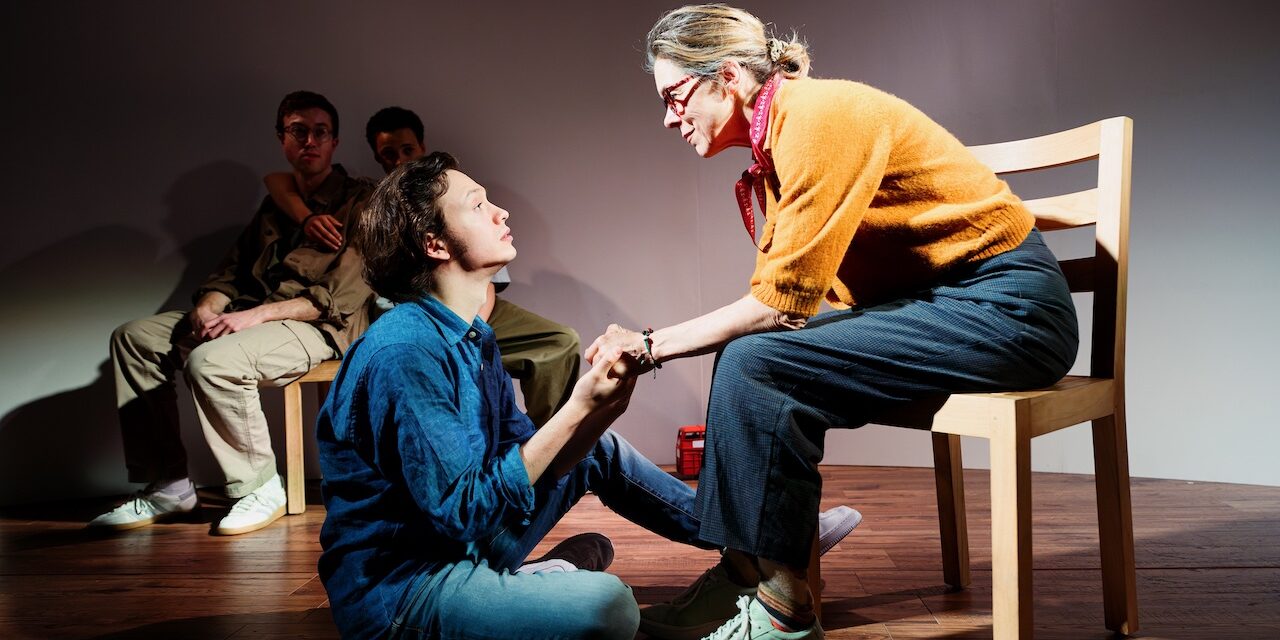
4 – 8 June
Social care is in crisis. Few talk about it.
Failures in provision sometimes materialise in the most brutal fashion. The story of Laughing Boy, about a young man with autism and epilepsy who died unattended in an NHS establishment, provides searing testament to a system unfit for purpose. Worse, one which lacks transparency and is prepared to victim blame to save face.
Connor Sparrowhawk was 18 when he was admitted as an in-patient facility in Oxford. His mother, Sara Ryan, a professor of Social Care at Manchester Metropole University working with people with learning disabilities and autism, and their carers, had been recording the joy and challenges of life shared with her son Connor in a blog that later became a rallying call (#JusticeforLB) for others who had lost loved ones to preventable death. Her book Justice for Laughing Boy, lays bare the coldness and adversarial, investigory processes that families face when someone dies in state ‘care’ (Sara’s parentheses). The book formed the basis of writer and director Stephen Unwin’s play which he describes as being personal, as his second son, like Connor, also has learning disabilities and epilepsy.
On a clear stage save for a curving rear white wall onto which video and text messaging is projected, plus a few hard-backed chairs, the drama of Connor’s family’s descent into pain, grief and anger is re-enacted. Unwin’s very effective use of movement keeps our attention throughout an uninterrupted single act divided by life before and after Connor’s death, and by the experiences at the coroner’s court and Connor’s funeral. The emphasis of Ben Ormerod’s lighting and some atmospheric video projection by Matt Powell, sometimes featuring footage of the real Connor at home, gave punctuation to a vivid script often referencing direct conversations between mother and son – Sara’s sweet references to her son Connor as ‘matey’ being a recurring, very personal term of endearment.
Janie Dee delivers a blistering performance as the loving and highly protective mother of a vulnerable child, later as an incandescent campaigner for justice when the worst of outcomes for her child is revealed. Her incomprehension at the dead-eyed incompetence of a broken system and her finger-wringing grief are palpable. Dee layers on a sense of visceral regret that a mother has allowed her darling boy into a hellscape masquerading as an assessment centre.
Alfie Friedman gives a wonderfully carefree depiction of the young Connor, most at home when clutching a favourite London red bus toy before he develops a more unpredictable sometimes violent nature which will lead to his being placed in an institution. There is good support from the other six members of the cast who play Connor’s dad and siblings, doubling as inquest lawyers and the sinister Dr Murphy.
As the play develops, Sara realises that justice for Connor takes on a much wider remit – that there have been many others who have gone through this most traumatic of experiences and, tragically, will continue to do so until central government finally grasps the nettle and decides what duty of care really means.
Forbes Masson, who plays Connor’s dad Rich, has tweeted: ‘One of the things I’ve enjoyed most about doing Laughing Boy has been watching theatre people learning so much from those with lived experience. And, I think, vice versa.’ This is surely true for the audiences this piece will touch – the play is a clarion call for action.
★★★★☆ Simon Bishop 5 June 2024
Photo credit: Alex Brenner


